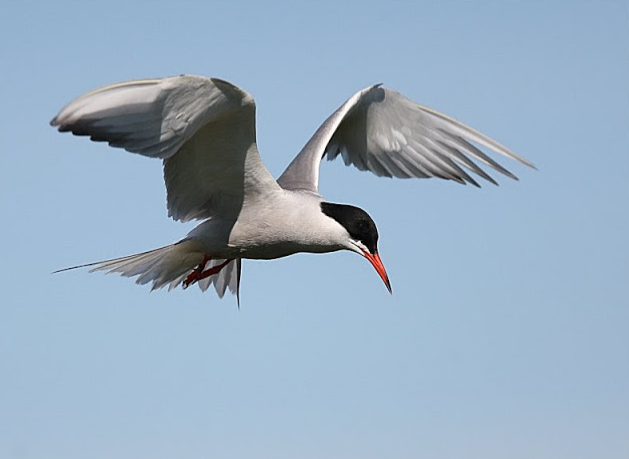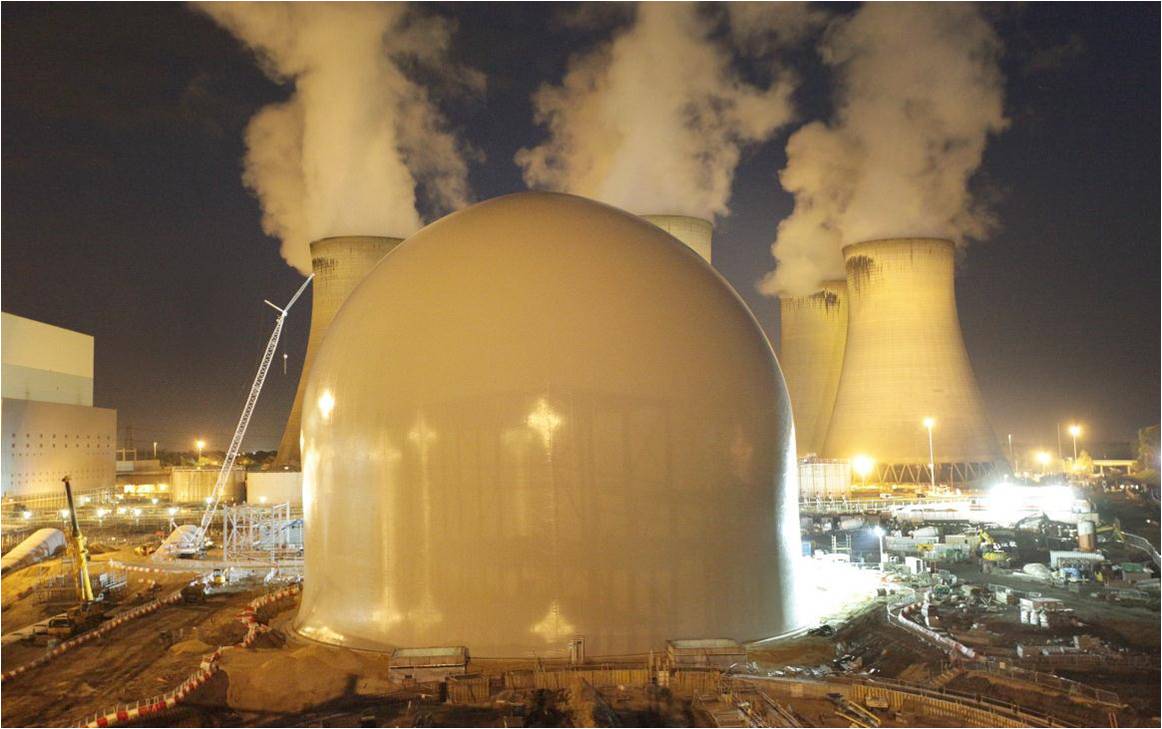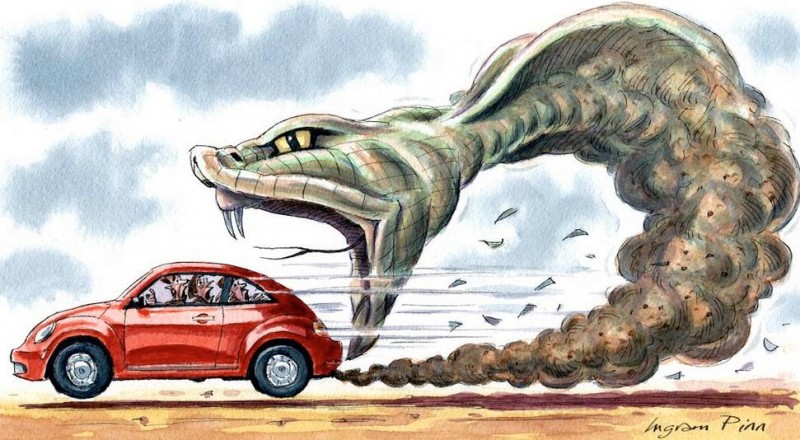Rural regions are Ireland’s green energy engine of the future

August 20th, 2018
Farmers in the UK and across continental Europe have been able to avail of opportunities from renewable energy for several years now.
Meanwhile, it has been frustrating to watch the extremely slow progress made to date on climate and energy in Ireland as policies take an excessive amount of time to turn from idea to reality.
Let’s look at sluggish state support for the renewable heating market as an example.
In 2010, the ReHeat scheme to support biomass boilers closed. At the time it was rumoured that the scheme would be quickly followed up with a market incentive scheme similar to that in the UK.
At a meeting with then-Minister for Energy Pat Rabbitte in 2013, I heard about plans for a support scheme for renewable heat, with the Department of Agriculture launching crop establishment grants to prime the supply chain.
Now, five years on since this meeting, the draft terms and conditions were finally launched this month. It will likely be open for applications in late 2018 but is unlikely to support more than a handful of projects this year.
At a time when Ireland is under significant international pressure for action on climate change, it took a full nine years to bring a policy from start to finish.
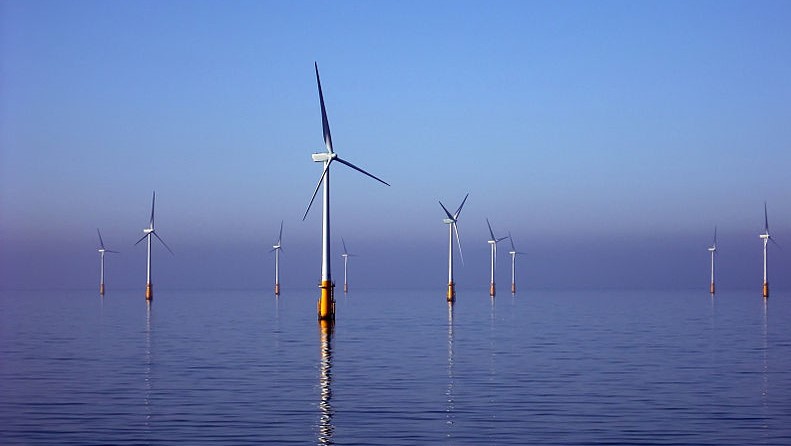
Offshore wind turbines at Barrow Offshore Wind off Walney Island in the Irish Sea Photo: Andy Dingley
Renewable electricity
For renewable electricity, the 2015 finish date for the Renewable Energy Feed-in Tariff (REFIT) was extended to this year.
Further support for renewable electricity will likely be ready for late 2019 for technology-neutral projects (i.e. onshore wind).
An auction in 2020 will provide some support for solar and possible even offshore wind if the Government’s timelines are to be believed.
This should see the first solar farms in Ireland producing at their peak in the summer of 2021. While this is welcome news, it will mark six years since the planned phase-out of REFIT and almost six years since the launch of the State’s energy white paper.
This policy development timeline is not serving Ireland well and the ridiculously under-resourced Department of Climate Action and Environment (DCCAE) will need bolstering for this to change.
Solar farms and rooftop PV
In this context, the solar rooftop grant, announced in the spring by the Minister for Climate Action, Denis Naughten TD and open for applications since the start of the month, is a significant piece of progress.
The fact that detailed consultations were held, input was taken, and the scheme design broadly welcomed by many is a fantastic step forward and those involved should be commended. Some farmers can avail of TAMS grants for solar which is also welcome.
However, while grants are a start, the real aim should be the sale of electricity at a fair price from excess energy produced by solar.
Other countries well down this track have noticed significant issues with this approach so it should be done in a way that allows for a sustainable solar market with appropriate incentives.
Favouring large-scale solar farms built by large national and international developers when citizens, farmers and businesses are unable to utilise roof space or marginal land to generate solar energy is unwise.
It would undermine the agricultural sector versus their European competitors and also shows an apparent disregard for the citizens that will ultimately pay for any subsidy.
Solar, although a hot topic this year, is only a small part of Ireland’s energy and climate challenge, however and will, at best, supply low single-digit percentages of our primary energy needs.
Pressing need to decarbonise
We need to implement a sustainable simple policy framework and move on to more pressing needs like decarbonisation of our heat and buildings, which we know produce 58 per cent higher CO2 emissions than the rest of Europe.
We need to create a sustainable renewable heat and biogas market (as not all biomass or biogas is sustainable) and work hard at providing efficient and cost-effective methods of utilisation of this heat in our buildings such as district heating.
We need to increase the electrification of heat and transport to utilise the low-cost renewable electricity from wind and solar and use high-value bio-products for challenging sectors like biogas for heavy goods vehicles.
To make this happen, we will need engaged citizens from all walks of life to directly demand change and to push their representative bodies for a shift in ambition at the top.
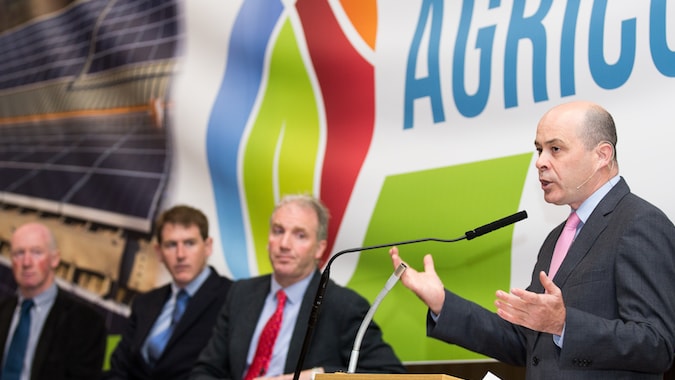
Climate Action Minister Denis Naughten, TD announced the BioEnergy scheme the at Energy in Agriculture Conference, August 2017 Photo: Energy in Agriculture
Energy in Agriculture
Tomorrow’s Energy in Agriculture conference at Gurteen Agricultural College in Co Tipperary will be an opportunity to engage, educate and inform farmers of these very opportunities.
We want farmers to understand that the future energy supply will come from their farms such as a wind turbine from an upland farm, a solar roof on a slatted shed, or an anaerobic digester using slurry and agri-residues.
The event is a Department of Agriculture approved Knowledge Transfer event and is a partnership between Gurteen College, Tipperary County Council, Teagasc, the Irish Farmers’ Association and Tipperary Energy Agency.
By Paul Kenny

Paul is the Chief Executive Officer of Tipperary Energy Agency. He has been with the agency since 2006 and Chief Executive since 2012. He is involved with both renewable energy (wind and bio-energy) and energy efficiency projects. Last year, he spoke at the Citizens’ Assembly on climate change and is a strong advocate of greater action on the reduction in use of fossil fuels.
